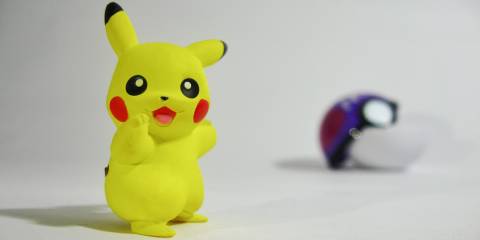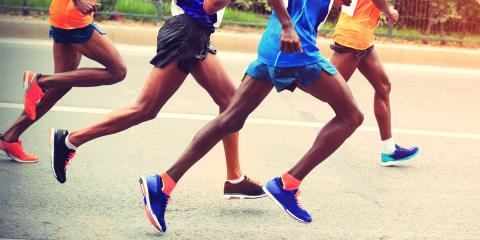Every hour on the hour I’m reminded to stand. If I haven’t exercised by midafternoon, I’m again reminded to get off my butt.
Who’s always in my ear? Well, I can’t afford a personal trainer, but I did splurge $429 for an Apple Watch. Leery of overusing technology, I won’t deny that a digital watch is a duplicative item because I already own a smartphone. My Apple Watch, after all, operates in sync with my iPhone. Initially, I couldn’t justify why I bought the watch. I got it only because it looked cool. I felt guilty as soon as I left the Apple Store.
Pondering the Sport-Gadget Market
Within days, I’d realized that the watch has real value and would improve my health and outlook on exercise. As a 48-year-old freelance writer and the father of two young children, I’m busy. I not only don’t have time to spend an hour at a gym, but I’ve also skipped exercising at home for a few years now. I’m lucky to have a beautiful nature trail alongside my house, but some days I just look at it from my window in between paragraphs of a story.
The Apple Watch monitors how often I stand, how much I move, and how frequently I exercise. Three overlaying broken rings move to form a closed circle to measure my progress, and the watch sends notifications when I’m not close to closing the rings. I now have a new source of guilt: not meeting the day’s challenge. But I’m feeling healthier and realize that most days I do indeed have time to exercise, even enough for a brisk walk.
The Right Gear for The Right Lifestyle
If I can do it, so can you. Here are some tech gadgets that are motivating others and may prompt you to exercise too.
Pick Your Smartwatch
Smartwatches are popular for their functionality and fashion, particularly because they’re not obtrusive while exercising. The Apple Watch works with third-party fitness apps, allowing me to also track how restfully (or restlessly) I sleep and how many miles I run. But Apple doesn’t have a corner on the market. Polar’s M600 smartwatch gets great reviews for tracking daily workouts, steps, sleep, heart rate, and calories, and at around $300 it costs less than an Apple Watch. Fitbit’s Versa and Ionic have both earned the praise of tech observers for their fitness features and long battery life.
Wearables for Everything
There are all types of wearable devices that have a narrower focus than the typically costlier smartwatches. Fitbit was among the first activity and fitness trackers, monitoring everything from aerobic exercise to yoga. But the market has since exploded with niche wearables. Consider Amigo’s fitness bracelets. With one on your wrist and another on your ankle, you can more closely track your movements. Not to be outdone, a smart sock by Sensoria uses, yes, sensors to gauge your running mechanics.
Choose Your Smartbottle
It’s not just watches and socks that are “smart.” Several companies offer cups and bottles that use technology to measure how much you drink. Obviously, hydration is key to proper exercise. Ozmo’s smartbottle is catching attention for how it vibrates as a reminder to drink. It displays how many more gulps are needed to reach your goal, which can be set on fitness apps that connect, via Bluetooth, the bottle to your smartphone.
Ever Heard of a Smart-Fork?
Eating quickly can make you eat more, and it certainly isn’t good for digestion. If you’re looking to eat well before and after exercising, take some bites with HAPIfork by Slow Control. A built-in accelerometer tracks hand motion to measure the time between bites. It will vibrate if you’re eating too quickly.





